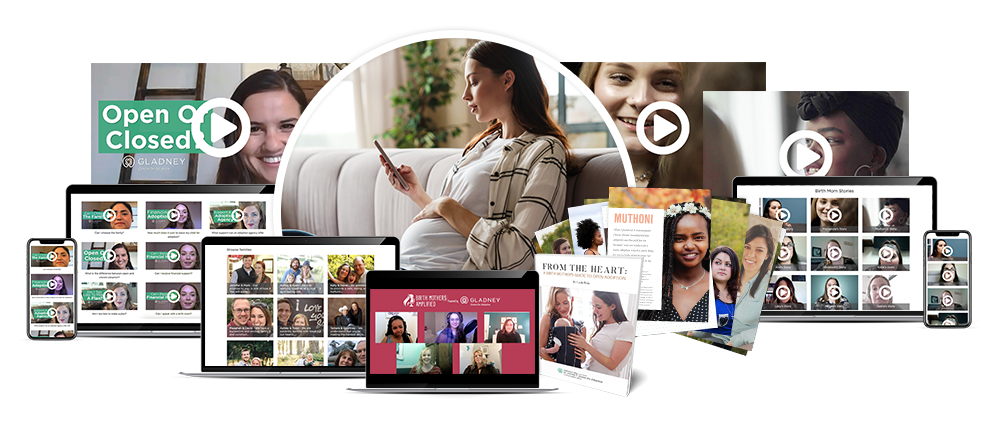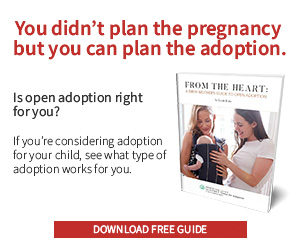So, as many in the adoption community can attest to, there is almost always “the hardest part of an adoption journey.” As I sit back and reflect on my adoption journey, I would have to say this: the hardest part of my adoption journey came in my later years . . . after the search, after the reunion.
It was sitting at the pediatric geneticist’s office, listening as the doctor gave me my diagnosis: You have Fetal Alcohol Syndrome. Yeah . . . I was 34 years old.
Yes, it had been a year-long uphill climb searching for my birth mom with only a first name and a date of birth and a guess at where she stayed after I was born. I met many kindred spirits along that journey, which made the climb easier. When I did fall, I didn’t fall far, I had the hands of family and newfound friends to catch me.
When I received my diagnosis though, WOW. My mind went backward to as young as my memories would allow. My difficulty with abstract concepts: a street sign with an arrow straight up in the air, doesn’t that mean our car will fly? (I was about 8.) Writing outlines in Elementary School (8-10 years old), I couldn’t decipher what went under the roman numerals and what to write under the letters. I still struggle today. In high school studying for a test, I would outline entire pages in a textbook for important concepts. Word problems in math, trouble reading a ruler. A tornado in my brain within 2 minutes. Once the dust settled, I felt relief. Answers, I had answers! YES! I left that appointment feeling relieved.
But the relief was like if I had taken Tylenol for a headache. It was temporary. What would follow would be eye-opening in-my-face mistakes that I would now know were due to a choice my birth mom made when pregnant with me. I had been making mistakes my entire life, but I assumed it was just me being a silly girl, and chalked it up to unknown genetics. Now that I had a reason for SOME of my “quirks,” and knew that these quirks could have been prevented, I had anger.
The geneticist had advised me I may have had a different brain had my birth mom chosen not to drink. So, even though I am a successful employee at my job, have a family, and nobody notices my shortcomings except me, family, and friends, this new information made me angry inside. And I am not an angry individual.
At the time I was struggling at my job, and decided with this newfound information I would disclose the diagnosis to my boss. I thought this would create “a bright side” in my job. I thought my diagnosis would lead to understanding by my boss of how I was struggling, and she would brainstorm with me ways to help me be successful. Instead, she used my diagnosis against me and tried to get me fired. That wasn’t fun. Nope, there was no bright side there . . . anywhere . . . yet. I did have some bright blips after my diagnosis. My mom started to understand me better, as did my husband. They both began to brainstorm with me ideas to help me be organized and successful when planning for a trip and getting my boys ready for school in the morning. So when I saw these little bits of light, I started thinking. There had to be more brightness. Not to be cliché, but everything has a silver lining, right?
I am happy to say I have found a bright spot. A bright side to the choice my birth mom made, that has given me an invisible disability. The bright side started as a blip, like the other blips.
Pregnant and considering adoption?
Get your free adoption benefits and support bundle

First, I stopped being angry at my birth mom. I had the facts of her childhood, well some of them. The other facts I didn’t have probably were not that happy. She was an orphan, she was in foster care until she graduated high school. Her older brother got to stay with their family. She came along and got booted out. She masked her sadness and her demons with alcohol. She had nobody to raise her and tell her the dangers of alcohol. So, I am not angry at her.
I have used my disability to become an educator about Fetal Alcohol Spectrum Disorders. I may have “quirks” and struggles as a result of this disability, but why not talk about them and educate others about the effects of alcohol on an unborn baby? I have spoken at conferences and to graduate students about Fetal Alcohol Spectrum Disorders, and I feel so empowered. I am learning to laugh at my quirks that are because my brain is somewhat damaged. Like the time I went to Marshall’s and bought $300 worth of Christmas gifts because the sales on shirts were $10.00! I can’t add up money very well in my head. Or how now when I buy too much, I sit in my car, go through it and then slink back into the store and try to find a different cashier to return the merchandise to so I don’t feel too embarrassed. I am learning to use these stories to educate others. If my diagnosis and my struggles can educate others, and enable those affected in some way by FASDs to see a brighter side to life, then life is good.
If you are curious about discovering your medical history, visit the new adoption information website to learn how to do that.


